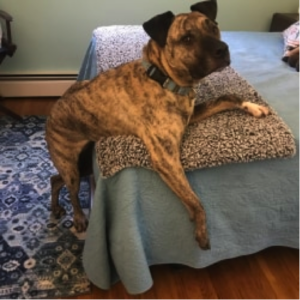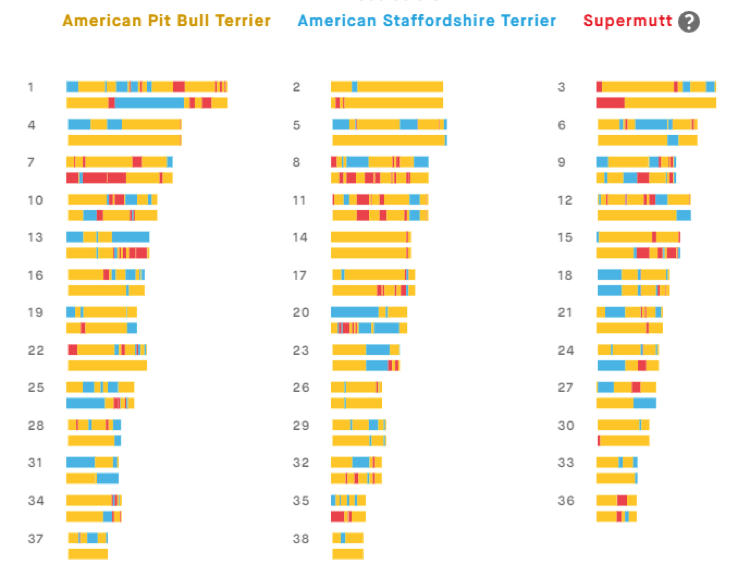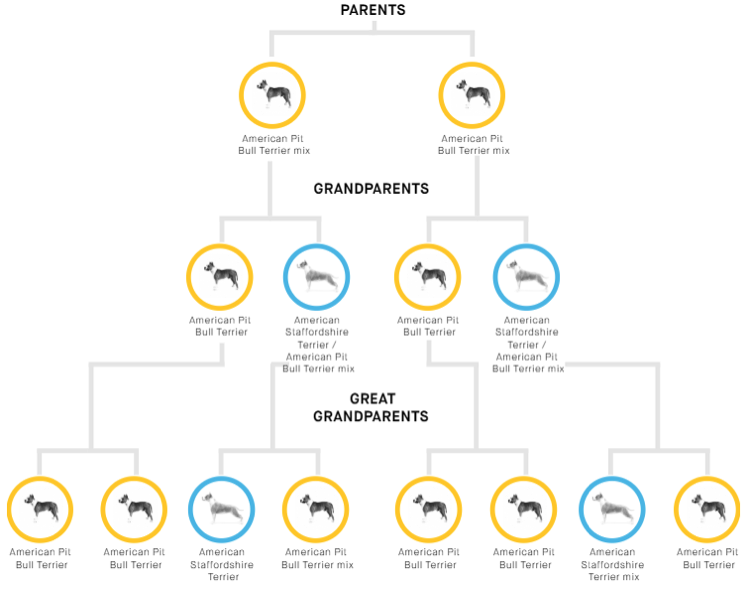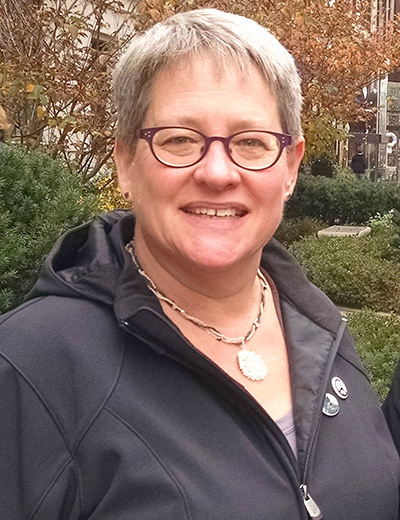 My daughter adopted her first dog back in July. Emje is a 9-year-old, 78-pound creature who curls up in your lap like a cat. His papers say he is a Pit Bull, but he has an unusually shaped body that got us thinking he may be a mixed breed. To find out for sure, we did an Embark canine DNA test.
My daughter adopted her first dog back in July. Emje is a 9-year-old, 78-pound creature who curls up in your lap like a cat. His papers say he is a Pit Bull, but he has an unusually shaped body that got us thinking he may be a mixed breed. To find out for sure, we did an Embark canine DNA test.
Embark offers a Breed Identification Kit that identifies your dog’s breed back four generations, or a more expensive Breed + Health Kit that, in addition to breed, identifies a predisposition for certain diseases and gives interesting detail on which genes result in which physical traits. The test uses a “research-grade genotyping microarray” developed at Cornell University College of Veterinary Science that targets 215,000 base-pair sites on the canine genome. Pet owners can opt to participate via surveys in further research that will add to Cornell’s canine biobank to assist researchers in understanding cancer and other illnesses in dogs.[1]
Very much like a human DNA test, the owner uses a swab to collect saliva from the side of the dog’s mouth, inserts the swab into a tube of liquid, and then mails the tube to the lab. The dog must abstain from eating for a time before the sample is collected. After only two weeks, we received Emje’s results.
Emje’s DNA indicates that he is 72% American Pit Bull Terrier, 19% American Staffordshire Terrier, and 9% “Supermutt” (this means a variety of other mixed breeds; for Emje, the test calls out an American Bulldog as a specific “distant ancestor”). The first two, American Pit Bull Terrier and American Staffordshire Terrier, are essentially the same breed, what is commonly referred to as a pit bull. (While the American Kennel Club only recognizes the American Staffordshire Terrier, the United Kennel Club, an international registry, had previously identified the American Pit Bull Terrier as a separate breed.[2])
 An image of Emje’s “family tree” shows his ancestry from the two main breeds. His mitochondrial DNA gives his maternal haplogroup as A1d; his maternal haplotype, A424. Because Emje is male, through his Y-chromosome we get his paternal haplogroup, D, and haplotype, H10.1/Hd.4. A haplogroup is a group of similar DNA sequences, or haplotypes, that are inherited entirely from the mother or father and that “don’t get shuffled up like other parts of the animal’s genome. Because they are inherited whole ... they can be used to trace the ancestral routes that dogs took around the globe.”[3]
An image of Emje’s “family tree” shows his ancestry from the two main breeds. His mitochondrial DNA gives his maternal haplogroup as A1d; his maternal haplotype, A424. Because Emje is male, through his Y-chromosome we get his paternal haplogroup, D, and haplotype, H10.1/Hd.4. A haplogroup is a group of similar DNA sequences, or haplotypes, that are inherited entirely from the mother or father and that “don’t get shuffled up like other parts of the animal’s genome. Because they are inherited whole ... they can be used to trace the ancestral routes that dogs took around the globe.”[3]
Speaking of travel... The D haplogroup is very common among Mastiff dogs, as well as Boxers and Bulldogs. As we commemorate the voyage of the Mayflower that took place 400 years ago, you may have heard about the two canine companions who sailed with the Pilgrims, a Spaniel and a Mastiff. They are mentioned by William Bradford and others in various historical accounts.[4] Could it be that, although I have not a drop of Mayflower blood (my dad’s family was all Essex County), I have a granddog who may be a Mayflower descendant?
Notes
[1] Embark Veterinary Inc. website at https://embarkvet.com/.
[2] American Kennel Club website, “About the Staffordshire Terrier” at https://www.akc.org/dog-breeds/american-staffordshire-terrier/; United Kennel Club website, “American Pit Bull Terrier” at https://www.ukcdogs.com/american-pit-bull-terrier.
[3] Embark Veterinary Inc. website at https://embarkvet.com/.
[4] Caleb Johnson, "Animals and Livestock of Early Plymouth” at http://mayflowerhistory.com/livestock; Rich Harbert, “The Mighty Mastiff of the Mayflower” at https://www.patriotledger.com/article/20120723/NEWS/307239882.
Share this:

About Sharon Inglis
In nearly 30 years in the educational publishing industry, Sharon developed and directed the production of French, Spanish, Italian, German, social studies, science, and math textbook programs for secondary school and higher education. She is very happy to be at NEHGS and applying her editorial and project management skills to Newbury Street Press publications, theMayflower Descendant journal, and whatever else comes her way!View all posts by Sharon Inglis →